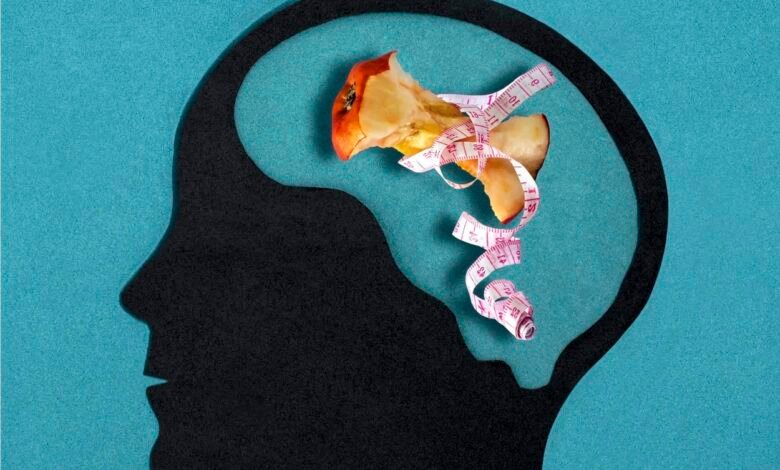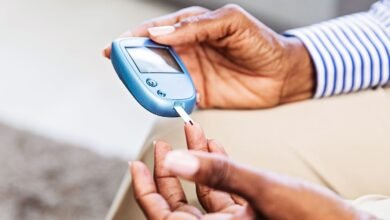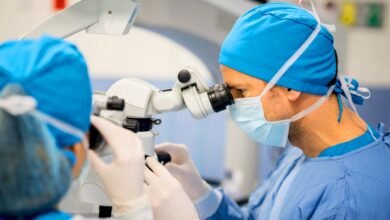The Physical Health Impact of Eating Disorders in 2023

Eating disorders are complex mental health conditions that have severe physical health consequences. In 2023, the prevalence of eating disorders remains a concerning issue, impacting individuals of all ages, genders, and backgrounds. This article delves into the physical health impact of eating disorders, shedding light on the various types of eating disorders, their symptoms, and the toll they take on the body.
We will explore the effects of eating disorders on different organ systems and discuss available treatment options, prevention strategies, and the importance of seeking help. If you or someone you know is struggling with an eating disorder, it is crucial to understand the physical consequences and take steps toward recovery.
The physical health Impact of eating disorders encompasses a range of conditions characterized by disturbed eating behaviors and distorted body image. In 2023, these disorders continue to be a significant public health concern, affecting millions of people worldwide. The impact of eating disorders extends beyond mental and emotional well-being, significantly compromising physical health.
Read More: 7 Best Ways to Manage Eating Disorders
Types of Eating Disorders
Anorexia Nervosa
Anorexia nervosa is characterized by severe restriction of food intake, leading to dangerously low body weight. Individuals with anorexia often have an intense fear of gaining weight, despite being underweight. The physical consequences of anorexia can be severe and life-threatening.
Symptoms of anorexia include extreme weight loss, obsession with body image, and distorted self-perception. Prolonged malnutrition in anorexia can result in cardiovascular problems, electrolyte imbalances, weakened bones, and hormonal disruptions.
Bulimia Nervosa
Bulimia nervosa involves episodes of binge eating followed by compensatory behaviors such as self-induced vomiting, excessive exercise, or fasting. People with bulimia often maintain relatively normal body weight, making the disorder harder to detect. However, the repetitive cycle of bingeing and purging takes a toll on the body.
Physical effects of bulimia include dental problems, electrolyte imbalances, gastrointestinal complications, and disruptions in heart rhythm. The chronic inflammation of the esophagus and damage to the digestive system can also lead to serious long-term health issues.
Binge Eating Disorder
Binge eating disorder is characterized by recurrent episodes of uncontrollable overeating without compensatory behaviors. It is the most common eating disorder, and its physical consequences are similar to those of bulimia, including weight gain, high blood pressure, diabetes, and heart disease.
Other Specified Feeding or Eating Disorders (OSFED)
OSFED encompasses various eating disorder symptoms that do not meet the specific criteria for anorexia, bulimia, or binge eating disorder. Examples include atypical anorexia nervosa, purging disorder, and night eating syndrome. While the diagnostic criteria may differ, the physical health impact can still be significant.
Physical Health Impact of Eating Disorders
The physical health consequences of eating disorders are far-reaching and can affect multiple organ systems. Understanding these effects is crucial for recognizing the severity of these conditions and encouraging timely intervention.
Malnutrition and Vitamin Deficiencies
The physical health Impact of eating disorders often leads to inadequate nutrition, resulting in severe malnutrition. Insufficient intake of essential nutrients, vitamins, and minerals can cause various health problems. The body becomes deprived of vital substances necessary for normal organ function, leading to weakness, fatigue, and impaired immune response.
Electrolyte Imbalances and Heart Problems
The physical health Impact of eating disorders disrupts the delicate balance of electrolytes in the body. Frequent purging, as seen in bulimia, can cause electrolyte imbalances, specifically potassium and sodium. These imbalances can lead to irregular heart rhythms, weakened heart muscles, and cardiac arrest.
Gastrointestinal Complications
Prolonged restriction of food or the regular bingeing and purging cycles associated with eating disorders can damage the gastrointestinal system. Gastrointestinal complications include constipation, acid reflux, gastric rupture, and inflammation of the esophagus. Over time, these issues can progress to more serious conditions like gastroparesis and peptic ulcers.
Bone Density Loss and Osteoporosis
Inadequate nutrition and hormonal disruptions resulting from eating disorders contribute to bone density loss. The decreased estrogen levels in females and testosterone levels in males can lead to osteoporosis, making the bones weak and prone to fractures.
Hormonal Disruptions and Reproductive Issues
Eating disorders can disrupt the delicate balance of hormones in the body, affecting various systems. Irregular or absent menstrual cycles, fertility problems, and decreased libido are common in individuals with eating disorders. These hormonal disruptions can have long-lasting effects on reproductive health.
Compromised Immune System
Malnutrition and inadequate nutrient intake weaken the immune system, making individuals with eating disorders more susceptible to infections and illnesses. The body’s ability to fight off pathogens is compromised, leading to frequent illnesses and delayed healing.
Treatment Options for Eating Disorders
Treating eating disorders requires a multidimensional approach that addresses the physical, emotional, and psychological aspects of the condition. The following treatment options are commonly employed:
Medical Intervention
Medical professionals play a crucial role in managing the physical health complications of eating disorders. Regular medical check-ups, monitoring vital signs, and addressing specific health concerns are essential components of the treatment plan.
Nutritional Counseling
Registered dietitians and nutritionists help individuals with eating disorders establish healthy eating patterns, develop meal plans, and ensure adequate nutrient intake. They provide education on balanced nutrition and guide clients toward a sustainable relationship with food.
Psychotherapy and Counseling
Therapy and counseling sessions are fundamental in addressing the underlying emotional and psychological factors contributing to the eating disorder. Cognitive-behavioral therapy (CBT), dialectical behavior therapy (DBT), and family-based therapy (FBT) are common approaches used to treat eating disorders.
Support Groups and Community Programs
Engaging in support groups and community programs can provide individuals with eating disorders a sense of belonging and support. Peer support, shared experiences, and practical coping strategies offered in these settings can be invaluable during the recovery process.
Inpatient and Outpatient Treatment Options
In severe cases, hospitalization or residential treatment may be necessary to ensure the safety and well-being of individuals with eating disorders. Outpatient programs provide a structured environment while allowing individuals to continue living at home and receiving support.
Prevention and Early Intervention
Prevention and early intervention strategies are crucial in addressing eating disorders and minimizing their physical health consequences. Here are some approaches to consider:
Promoting Positive Body Image
Promoting a positive body image involves challenging societal beauty standards and emphasizing self-acceptance. Encouraging individuals to appreciate their bodies for their strength and capabilities, rather than their appearance, can contribute to a healthier relationship with food and body image.
Encouraging Healthy Eating Habits
Educating individuals on balanced nutrition and fostering a healthy relationship with food can help prevent the development of disordered eating patterns. Encouraging regular mealtimes, intuitive eating, and mindful eating practices can promote a positive approach to nourishing the body.
Addressing Underlying Emotional and Psychological Factors
Recognizing and addressing emotional and psychological factors that contribute to eating disorders is essential. Providing access to mental health services, promoting emotional well-being, and teaching healthy coping mechanisms can help individuals develop healthier strategies for managing stress and emotions.
Increasing Awareness and Education
Raising awareness about the signs, symptoms, and consequences of eating disorders is vital in promoting early intervention. Education campaigns targeting schools, healthcare professionals, and the general public can help reduce stigma and improve access to appropriate support and treatment options.
The Role of Family and Friends
The support of family and friends is crucial in the recovery journey of individuals with eating disorders. Here’s how loved ones can provide meaningful support:
Support and Understanding
Providing unconditional support, empathy, and understanding can make a significant difference in an individual’s recovery. Demonstrating patience, compassion, and active listening creates a safe space for open communication and trust.
Encouraging Professional Help
Encourage your loved one to seek professional help from healthcare providers specializing in eating disorders. Help them research and find appropriate treatment options that suit their needs.
Creating a Safe and Non-judgmental Environment
Avoid making negative comments about appearance, weight, or food choices. Create an environment that fosters body positivity, self-esteem, and self-acceptance. Encourage open conversations about feelings, concerns, and challenges related to the eating disorder.
Seeking Help for Eating Disorders
Recognizing the signs and symptoms of eating disorders is crucial in encouraging timely intervention. If you or someone you know is struggling with an eating disorder, it is important to seek help. Here are some steps to take:
- Recognize the signs: Look out for significant weight changes, obsessive thoughts about food and body image, excessive exercise, and social withdrawal.
- Talk to a healthcare professional: Reach out to a primary care physician, therapist, or counselor experienced in eating disorders. They can provide guidance and connect you with appropriate resources.
- Access helplines and support networks: Many helplines and support networks are available for individuals with eating disorders. These resources offer confidential support and can provide valuable information about treatment options.
Conclusion
Eating disorders have severe physical health consequences that can impact multiple organ systems. In 2023, it is crucial to raise awareness about the physical health impact of eating disorders and promote early intervention. By understanding the physical consequences, seeking help, and providing support, we can make strides in improving the well-being and recovery of individuals with eating disorders.
Read More: Not Just Young People Experience Eating Disorders
FAQs
What are the warning signs of an eating disorder?
A: Warning signs of an eating disorder include significant weight changes, obsession with food and body image, restricted eating patterns, excessive exercise, and social withdrawal.
Can eating disorders be cured?
A: Eating disorders can be treated and managed with appropriate interventions. Recovery is possible with the right support, treatment, and lifestyle changes. However, it is important to recognize that the recovery process varies for each individual.
Is it possible to recover from an eating disorder without professional help?
A: Professional help is strongly recommended for individuals with eating disorders. Eating disorders are complex conditions that require specialized treatment, therapy, and medical support. Professional help maximizes the chances of successful recovery.
Are men also affected by eating disorders?
A: Yes, eating disorders can affect individuals of all genders. While traditionally more prevalent in females, an increasing number of males are also being diagnosed with eating disorders.
How can I support a loved one with an eating disorder?
A: Supporting a loved one with an eating disorder involves providing understanding, empathy, and unconditional support. Encourage them to seek professional help, create a safe and non-judgmental environment, and educate yourself about eating disorders to better understand their experiences.







